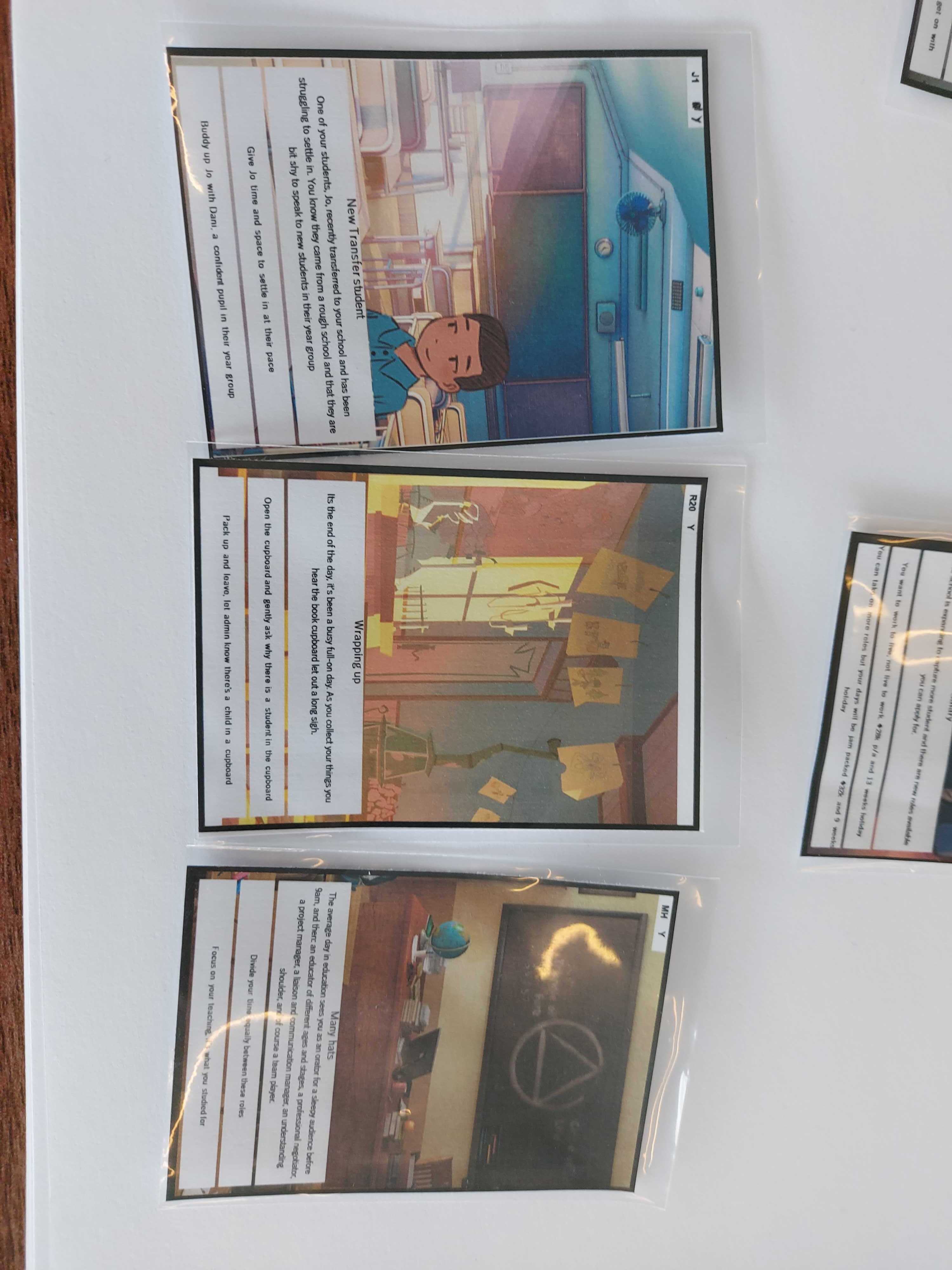When it comes to designing a game for recruitment, there aren’t a lot of references out there (aside from ARMA or Fortnite) in the military. However, there have been a few cases were games have helped with recruitment, L’Oreal uses a simulation game to assess candidates in management for their innovation and competitiveness. If we cast the net a bit wider for games that communicate key information to players, that could almost include all games right?
Well, when it came to designing a game for teacher recruitment, we looked at what games had been used to convey information outside of entertainment. We saw examples such as Uber Drive, and SPENT as visual novel-style games that conveyed a serious message to players. These games formed the backbone of an idea when it came to designing TeachQuest. Given we had 12 months to make a game, it would have been risky to take a concept and run with it without testing?
Though it took a couple of months to learn the teaching motivations and goal for the game, this time was used to create a paper prototype of TeachQuest. We used Excel to create a list of scenarios or events that have happened in schools and could likely turn up for a prospective candidate of teaching. We then had some sort of a narrative coming through, where we could build a ‘deck’ of cards to simulate a visual novel or choose your own adventure-style game. Looking at other narrative games such as Desta and 80 Days we could see the appeal in providing a short engaging experience where non-gamers can access the games easily.
To design the TeachQuest paper prototype, I used CardMaker, a tool to create a set of cards with text written by myself and education specialists. We created a rule system so follow-up events and random events could occur too, to simulate some of the uncertainty a digital engine could accomplish. Our motivation for the narrative genre was that it can offer short scenarios and insights into the daily life of a teacher, with the addition of impactful decision-making. With concerns regarding persuasive games’ replayability, player control, and managing player attention, we designed multiple options that can lead to different outcomes that could address these concerns. Temporary artwork was used with a range of styles, this was used as a discussion prompt to understand more about the target audiences’ preferences towards tone and style.

The paper prototype was constrained to be a 15-minute experience, with most scenarios (cards) providing one-off anecdotes from a teacher’s experience with the exception was a handful of cards that had divergent narrative choices to promote reflection. For example, a participant would draw a card from the deck and read out the scenario;
| “During the coding class day, you noticed Noah was on his phone and appeared disinterested. When you ask if they need help, they say they already know all about this” |
They would then see two options on the card
|
A participant was open to choose an option or discuss with other participants in the group. When they chose an option, the moderator would read out a result or reply to the option to simulate a resolution. For example, choosing option (1) would result in: The player chooses option 1) Challenge Noah with a tricky task: this will prove whether he does know it! Moderator: Noah gives you a questioning glance but then accepts the challenge you've set. You know Noah can be quite competitive TeachQuest would then continue with events such as these with an open discussion on what they thought of the options and responses. |
The results of our paper prototype were quite positive, participants expressed a desire for more content and liked the idea of a narrative/visual novel game with complex choices. Though they did want to see more difficult choices and variance in the types of scenarios, there was a positive response to the genre of game. The deck system for having character cards, random event cards, and information cards appeared to work well too. Therefore, when it came to the subsequent digital development. We kept the design reference to ‘decks’ of cards throughout development and into the ink narrative engine we later used. We then had a ‘deck’ of events and scenarios to suit individual character stories, random school events, random personal events, pedagogy events and classroom events. This allowed us to cater towards what our audience, or researchers, wanted in terms of content.
The paper prototyping phase was a highly successful step in testing the feasibility of the genre with our intended audience. It gave us the first steps toward how we designed TeachQuest and how we implemented the design into a digital prototype. The deck system was a novel method to approaching the design of random scenarios and creating a complex narrative system.
Did you like this post? Tell us
Leave a comment
Log in with your itch.io account to leave a comment.